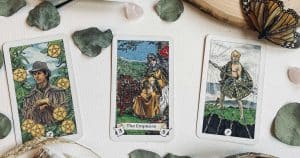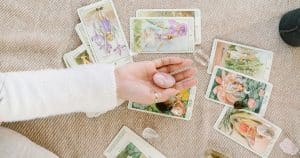
What does going to church on Sunday have to do with going to a baseball game? If you get rid of the trappings unique to each, at the core they are rituals meant to comfort and sustain us. While churchgoers can rely on the priest walking to the altar and following a liturgy that has roots stretching back two thousand years, baseball fans know that the home team will take the field first after the national anthem is sung and that there will be a seventh inning stretch no matter what the score is. While each mass is unique, celebrating certain anniversaries or holy days, the structure is reliable and every person in the pews knows what is coming next. Any surprises in a church service are incidental to the whole, which thrives in consistency. Meanwhile, every baseball game features new activity and different players, but the rules that applied to Babe Ruth and Ted Williams as our great grandparents watched apply to today’s stars in the stadiums and to the little leaguers we drive to the park.
When we are engrossed in a ritual, the familiarity of it all comforts us. No matter what new stress or drama is infecting your life, the comfort of following along as an event is being renewed allows us to appreciate life as we live in the moment. Ritual is a great security blanket and a beautiful expression of human potential.
The need for ritual is a symptom of the human condition. Few, if any of us can escape the healing rhythm that repeating actions and experiences bring to us. When we are not immersed in some daily, weekly or regularly scheduled ritual, we can look back on the events that marked our transformations by recalling the rituals we underwent at an earlier time. Looking in the future, there are coming rituals for us all that will mark future turning points as well.
You can recall the time when, as a child, you were the flower girl in a wedding, knowing that one day you would be a bride. Serving as a bridesmaid for a friend was the next step in the lifelong ritual of marriage. Your own wedding will be an elaborate ritual to confirm and celebrate a major turning point in your life. Two or more decades later you will watch your husband give away a bride, participating yet again in a ceremony that represents ideals that are important to all of us.
There is a great comfort in our daily rituals. Waking up and grooming in a consistent manner, having a cup of coffee and checking our email, meditating in the wisps of burning incense or doing a crossword puzzle; whatever the little regularities of the morning are for each of us, they allow a sense of control over our own lives to give us strength to face the coming chaos in the day.
Across continents and cultures, rituals mark the passage of time and reiterate who we are. Rituals occur in every level of human activity, from the religiously sublime to the potentially irresponsible & ridiculous. The devout Muslim must make the hajj to Mecca at least once in a lifetime. The college student in America goes out drinking with friends to celebrate his or her 21st birthday. While clearly two extreme examples contrasting a sacred act performed out of devotion to one’s religion with a (in)discretionary coming-of-age self-indulgent binge, at the most abstract a commonality exists surprisingly enough. Years later, each of these rituals are looked back upon with fondness, not necessarily for what occurred at the moment, but for who you were then and what you have since become in life.
Many rituals allow us to break down the boundaries that society builds to keep different groups separate. The consistency of a church service puts shy people at ease around the people they see once a week even though they would be mortified to talk to a stranger. Participating in a ritual as a group can give one a stronger sense of identity. Many fraternal organizations have a hazing process that ensures new members are willing to sacrifice some level of individuality in order to be accepted as a member of the group.
Some negative rituals have crept up in modern life and can become a regular part of our day-to-day existence because their familiarity spawns a comfort. This type of ritual is known as a bad habit. Taking a cigarette break can be a way to pace yourself through days of heavy work, but the ultimate cost to your health might not be worth the break from drudgery that standing up and stretching in your cubicle could also deliver. Dieting is a ritual that many women cycle through a few times a year. The vow to “get serious” and change your relationship to food can last a few days and perhaps involves a self-help group or the appointing of a friend as your lifeline, available for supportive late night phone calls. The ritual winds its way through and just as a few pounds seem to be off, an emotional trigger drives you to overindulge, leading to bad feelings and more pounds added.
Even as these negative rituals have a mild self-destructive streak, the elements and structure of our ritual behavior is all there. We start the process already knowing the outcome and yet we indulge because the familiarity gives us comfort. The key in embracing ritual is to see where it can help make us enjoy life more. You can define a healthy ritual by answering yes to the following questions:
Does the ritual foster a sense of wonder at being part of something bigger than yourself?
Positive rituals open your eyes to the wonder of the universe. Negative rituals inevitably have a narcissistic underbelly, allowing one to wallow in victimhood.
Does the ritual bring you into a community?
Positive rituals connect you to the world. Negative ones pull you into an alienated place.
Is the ritual there for you when you want it?
Positive rituals accompany our lives and go on without us if some obstacle prevents us from attending. Negative rituals make unreasonable demands of commitment that stop us from being who we really are.
We will pass many signposts throughout this incredible journey that we call life. The familiar signposts are our regularly scheduled rituals. The bridges we cross in this journey are the transformative rituals that mark our passages into new parts of our lives. Looking forward or backward, rituals are the foundation upon which we come to know ourselves as a participant in the world. Play ball!











